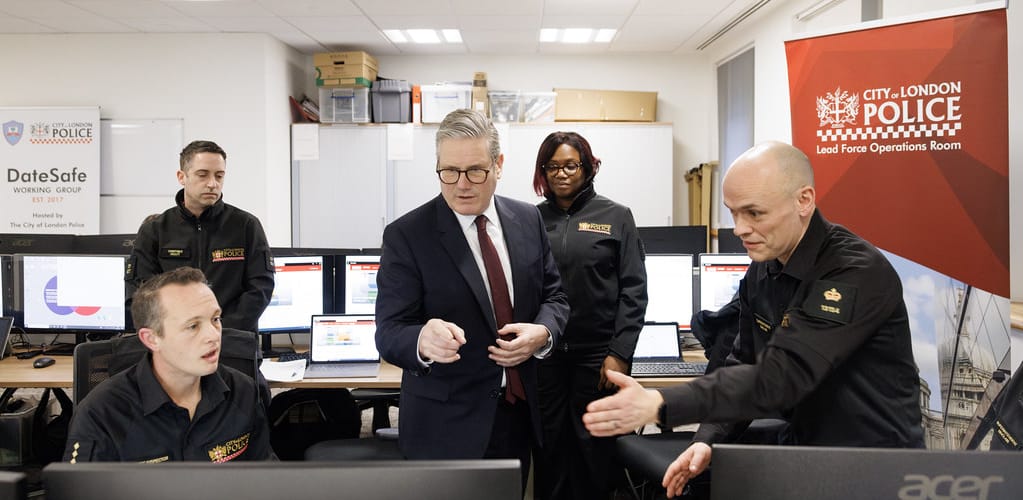
Police are failing to deliver a minimum standard of service, according to the UK public
The UK government has doubled funding for neighbourhood policing, but trust in police remains low. Research highlights the need for responsive, fair, and engaged policing to rebuild confidence and effectiveness.
What you need to know
● The UK government has doubled neighbourhood policing funds to £200 million, supporting 13,000 new officers.
● Research shows police fail to meet public expectations in response, behaviour, and presence.
● A national survey found low confidence in police transparency, prioritisation, and follow-up.
● Addressing unrealistic policing expectations and improving community relations could rebuild trust.
T he UK government has doubled the additional funding for neighbourhood policing in England and Wales to £200 million. This is to support its commitment to putting 13,000 new police officers on the streets.
High-profile cases and scandals have eroded trust in police in the UK. According to some metrics, it is at its lowest level in 20 years. But the key to repairing it could be through neighbourhood policing. After all, this is where most people’s interactions with police happen.
The government clearly understands this, hence the extra funding – but how do we make sure that the new recruits are delivering a good policing service?
My colleagues and I within the Vulnerability & Policing Futures Research Centre (University of York and University of Leeds) have recently published research that shows police are failing to meet the public’s minimum standards of service delivery.
With Professor Ben Bradford, we developed a framework for a “minimum policing standard”. This is a list of things that members of the public, when asked, think the police should simply be able to do as a minimum standard under normal circumstances.
We asked focus groups around the country – a total of 93 people – to identify what “good” or “effective” policing meant to them. Members of the public felt very strongly that, at minimum, police should be responsive, fair and respectful, as well as engaged and visibly present.
Interestingly, people were more concerned with how policing is conducted, the quality of the treatment people receive, and the relationship between the police and the communities they serve, than with particular outcomes.
The three areas that our respondents thought were most important to the minimum standard were:
- Response: the way police respond to calls for service, follow up and address crime.
- Behaviour and treatment: the ways officers and the police as an organisation treat individuals and communities.
- Presence and engagement of police in neighbourhoods.

— Boris Johnson and Priti Patel visiting the police in Birmingham, Jul-2019.
How are the police doing?
We then conducted a nationally representative survey of 1,484 respondents across Britain, and found that they viewed police to be failing across all three areas.
Less than 30% of people were confident that police are open and transparent with the decisions they make, prioritise the crimes most affecting the respondents’ community, and provide adequate follow-up after a crime has been committed.
While a majority of our respondents had confidence that police would treat people with respect, less than half thought that police were good role models, or that they built good relationships with the community or with young people. However, the public still retained significant trust in the idea of “the police” as a whole – which gives me and my colleagues hope that things can improve.
The government’s efforts to reverse declining confidence in police focus on three aspects: internal reform, fighting crime and revitalising neighbourhood policing. Though all of these are important, our research suggests that the last is the most vital.
Trust in the police has consequences for crime, too. Research shows that people are more likely to report crime and cooperate with investigations when they feel that the police are fair and respectful.

— Home Secretary Yvette Cooper and Prime Minister Keir Starmer with police officers at the Interpol General Assembly, Nov-2024.
Declining officer numbers and experience
Between 2010 and 2018, police officer numbers declined from 143,734 to 122,405 across England and Wales, an overall loss of over 21,000 officers. Since 2019, this has increased back up to 147,746 by March 2024. But it means that we now have a police workforce that is both younger and less experienced. In March 2024, more than one in three police officers had less than five years of service.
The Home Office said that the additional £100 million in funding “reflects the scale of the challenges that many forces face” in building out their neighbourhood policing teams. This funding is to help them reach the aim of putting those extra 13,000 officers on the street by 2029.
But these new recruits will again be inexperienced, and may not have developed the appropriate social, interpersonal and problem-solving skills to ensure that standards are met in all instances. This could lead to mistakes that set public confidence and trust in policing back further.
One way to address this would be to limit the range of social problems that police are expected to respond to. Too often, the police are called upon to manage a host of social ills and vulnerable people. They are often filling gaps left by the withdrawal of other public and third-sector services, such as mental health services, exacerbated by austerity.
Yet there has been little critical assessment of what problems the state is asking the police to solve, and whether the police are really the best suited to solve them. Greater clarity about the limited role of the police would help avoid raising unrealistic expectations, and focus attention on the minimum standards that people want from local policing.
Our research suggests that if police meet a minimum standard in their neighbourhood interactions with the public (the small things), then the public will be more likely to trust the police to be fair and trustworthy when it comes to big and complex things like serious organised crime, counter-terrorism and violent offending.

GOING FURTHER
Do people think police are meeting minimum standards of service delivery? | Vulnerability & Policing Futures Research Centre
Sources:
▪ This piece was originally published in The Conversation and re-published in Europeans TODAY on 21 February 2025. | The author writes in a personal capacity.
▪ Cover: Flickr/Number 10. (Licensed under a Creative Commons Attribution-ShareAlike 4.0 International License.)






[Read our Comments Guidelines]